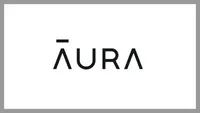Millions of users could fall for fake Facebook ad for a text-to-AI-video tool that is just malware
AI tools may be riskier than you think, experts warn

Sign up for breaking news, reviews, opinion, top tech deals, and more.
You are now subscribed
Your newsletter sign-up was successful
- Fake AI video editor ads are targeting Facebook users
- Threat group UNC6032 has been identified spreading malware
- The ads have reached over 2 million users
Google’s Mandiant Threat Defense group has identified a campaign, tracked as UNC6032, which “weaponizes the interest around AI tools” - specifically tools used to generate videos based on user prompts.
Mandiant experts identified thousands of postings of fake “AI video generator” websites that actually distribute malware, which has led to the deployment of payloads, “such as Python-based infostealers and several backdoors.”
The campaign sees legitimate AI generator tools like Canva Dream Lab, Luma AI, and Kling AI impersonated in order to trick victims, which have collectively reached “millions of users” across both LinkedIn and Facebook - although Google suspects similar campaigns may be targeting users on multiple different platforms too.
Save up to 68% for TechRadar readers!
TechRadar editors praise Aura's upfront pricing and simplicity. Aura also includes a password manager, VPN, and antivirus to make its security solution an even more compelling deal.
Preferred partner (What does this mean?)
AI tool risks
The group, UNC6032, is thought to have ties to Vietnam, but EU transparency rules allowed researchers to see that a sample of 120 malicious ads had a total reach of over 2.3 million users - although this does not necessarily translate to that many victims.
“Although our investigation was limited in scope, we discovered that well-crafted fake “AI websites” pose a significant threat to both organizations and individual users,” the researchers confirm.
“These AI tools no longer target just graphic designers; anyone can be lured in by a seemingly harmless ad. The temptation to try the latest AI tool can lead to anyone becoming a victim. We advise users to exercise caution when engaging with AI tools and to verify the legitimacy of the website's domain.”
Be sure to thoroughly vet any adverts on social media, and manually search any software deals into a search engine before downloading anything in order to properly verify the source.
Sign up to the TechRadar Pro newsletter to get all the top news, opinion, features and guidance your business needs to succeed!
We also recommend checking out the best malware removal tools to keep your devices secure.
You might also like

Ellen has been writing for almost four years, with a focus on post-COVID policy whilst studying for BA Politics and International Relations at the University of Cardiff, followed by an MA in Political Communication. Before joining TechRadar Pro as a Junior Writer, she worked for Future Publishing’s MVC content team, working with merchants and retailers to upload content.
You must confirm your public display name before commenting
Please logout and then login again, you will then be prompted to enter your display name.
